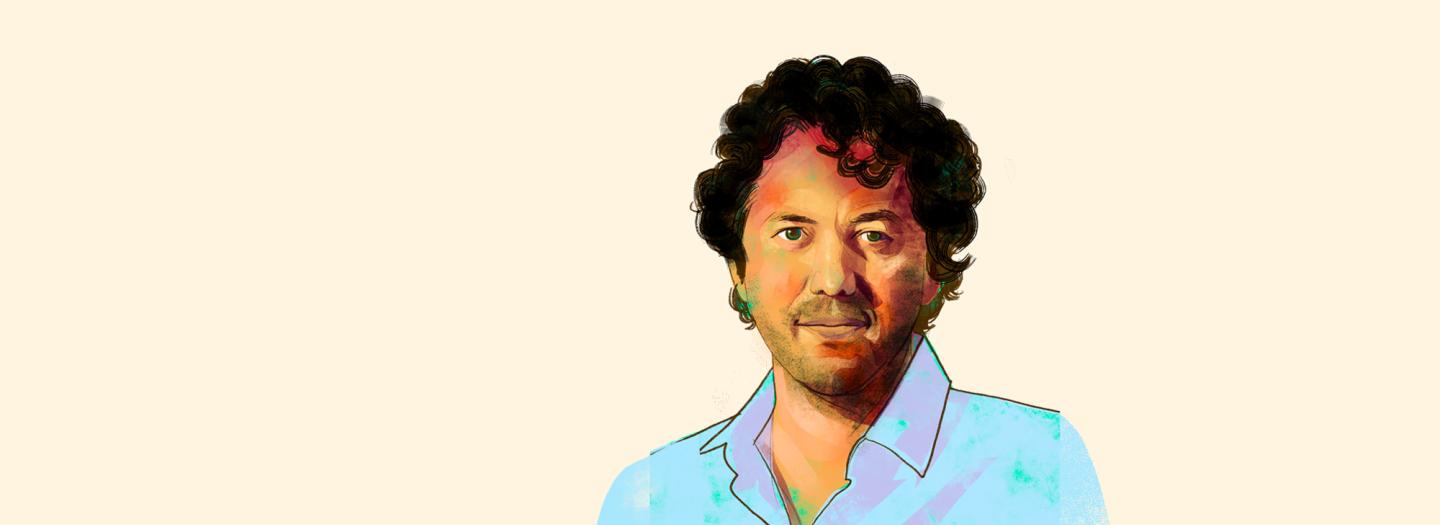Sebastian Bernales, PhD ’06, Postdoc Alum : Inspiring Innovation Through Connection

From an early age, Sebastian Bernales wanted to help people. As the son of two physicians – his father is a psychiatrist, his mother a pediatrician – he figured he’d become one himself. But upon entering Catholic University in his home country of Chile, he discovered another option.
“I had never heard about biochemistry as a potential career,” says Bernales, who quickly knew he’d found his field of study. “This is what I love – being involved in experiments, learning, and testing hypotheses.”
His biochemistry major required a one-month internship in a lab, and he set his sights on California, a dream that was formed during a Sunday afternoon barbecue at his parents’ home. He picked up a newspaper and saw an article about Bernardita Méndez, PhD.
“She was the only woman on the management team of a biotech company called Chiron,” Bernales says. “I said to my family, ‘Can you imagine if I could do an internship at this biotech company in California?’”
As luck would have it, his father knew Méndez’s sister, and through her got the phone number for Méndez’s husband, Pablo Valenzuela, PhD, a biochemist who helped develop the hepatitis B vaccine and co-founded Chiron.
Bernales called Valenzuela, and the two immediately hit it off. Bernales went to California for a month-long internship that turned into six months. Valenzuela encouraged Bernales to skip a semester at his school in Chile and continue working in his lab.
“I used most of those six months, when I was not in the lab, just to connect with people,” Bernales says.
Connection became a sort of subspecialty of Bernales’ scientific career. He has spent years bringing scientists together for conversation and collaboration, as well as bringing funders to scientists who have promising ideas.
From student to mentor
One of the people Bernales connected with while in San Francisco was Peter Walter, PhD, professor emeritus in the UCSF Department of Biochemistry and Biophysics.
Bernales quickly saw at UCSF, and in Walter, the right fit for his graduate studies in biochemistry.
“I asked Peter, ‘Is there any way that I could come here during the winter, because the winter in the US is the summer in Chile, so I have holiday time.’” Walter made the arrangements, and when Bernales finished his undergraduate degree, he spent three months in Walter’s lab “as a summer student in winter.”
Bernales then enrolled at UCSF, where he earned a PhD and completed postdoctoral training.
“My time at UCSF was amazing, truly amazing,” Bernales says. “It gave me the possibility to pick from many, many different labs. From day one, I felt very special being at UCSF.”
During those years, Bernales and Valenzuela organized an annual trip they dubbed “Science and Friendship.” They took a group of students and faculty members to Chile to discuss science with students and colleagues, and on group adventures to Patagonia and the Atacama Desert.
“It was a way to put Chile on the scientific map,” Bernales says. Over the years, more than 200 scientists from UCSF made the trip.
One of them was David Hung, MD ’84, a UCSF alum and co-founder and CEO of biotech Medivation. After UCSF, Bernales joined the Medivation team and opened a lab in Chile, where he helped develop Xtandi, a “blockbuster” drug for prostate cancer.
“I saw firsthand how something that was an idea could transform into something that was helping people,” he says.
In 2016, Medivation was acquired by Pfizer for $14 billion. After the buyout, Bernales and Walter co-founded Praxis Biotech, where Bernales also served as CEO, and he co-founded the gene-editing company Metagenomi. He is currently a general partner at the Humboldt Fund, a venture capital firm he co-founded in 2020.
“I always had in my mind that first, I’m going to get trained. Then, I’m going to be an employee. Then, maybe, the founder of a company. I’ve been fortunate to have accomplished all of that,” he says. “Now I have the opportunity to participate on boards and give companies startup money so they can develop new ideas, just like I got to do.”
Bernales has invested in research and startups focusing on gene editing, antibiotic resistance, longevity, the gut-brain axis, mitochondrial diseases, and cell-based therapies.
The work gives him the opportunity to meet with, and learn from, scientists in many different fields – something he loves and that follows naturally from his inclination to connect.
“It’s not only about giving them money and then calling them three years later to see what happens,” he says. “It’s also being involved, helping them, trying to contribute – basically knowing and relating to where they’re coming from.”
Leading into a brighter future
Bernales’ effervescent way of networking and bringing teams together motivated another of his mentors, William Rutter, PhD – former chair of the UCSF Department of Biochemistry and Biophysics and co-founder of Chiron – to nominate Bernales for the UCSF Graduate Division Alumni Association’s Alum of the Year.
“In a world that thrives on extensive connectivity and necessitates the emergence of new visionary leaders,” Rutter wrote, “Sebastian Bernales stands out as an individual who embodies the qualities needed to lead us into a brighter future.”
Bernales is currently splitting his time between San Francisco and Uruguay, along with his wife and children, in a continuation of the Science and Friendship trips from his UCSF days.
“What I’m doing right now, one year with the family here, is related to that,” he says. “I want to see how I can continue helping Latin America.”
• Sebastian Bernales, PhD ’06, Postdoc Alum - Graduate Division Alumni Association Alum of the Year
• Cheryl J. Cherpitel, BSN ’68, DrPH, MPH - Alumni Discovery Award
• Nicholas T. Hertz, PhD ’13 - Alumni Early-Career Award
• Kelly Nguyen, PharmD ’96 - Alumni Entrepreneur Award